Confirmed speakers to date: updated 26Feb13
- Jim Baller, The Baller Herbst Law Group
- Edwin Bender, National Institute on Money and State Politics
- Jerry Brito, Mercatus Center, George Mason University
- Darcy Burner, Candidate for U.S. House of Representatives, 2006, 2008, 2012
- Vint Cerf, VP and Internet Evangelist, Google
- Dylan Chambers, Musician
- Lester Chambers, Musician, former member of The Chambers Brothers
- Mistress Clarissa, mclarissa.com
- Peter Cochrane, Cochrane Associates, former Chief Scientist & CTO, BT
- Aaron Deacon, KC Digital Drive
- Joey Durel, Mayor of Lafayette, Louisiana
- Gary Evans, Hiawatha Broadband Communications, Inc.
- Brendan Fischer, Center for Media & Democracy
- Amy Garmer, Aspen Institute, Freedom to Communicate Forum
- Dan Gillmor, Walter Cronkite School of Journalism, ASU
- Mike Godwin, Internews
- Lisa Graves, Center for Media & Democracy
- Glenn Greenwald, The Guardian
- Ben Huh, founder & CEO, Cheezeburger.com
- Terry Huval, Director, Lafayette Utility System
- David S. Isenberg, isen.com, LLC
- Tim Karr, Free Press
- Pat Kennedy, Lit San Leandro
- Derek Khanna, former staff, US House Republican Study Committee
- Sascha Meinrath, Open Technology Initiative, New America Foundation
- Dan Meredith, Freedom2Connect Foundation
- Chris Mitchell, muninetworks.org, Institute for Local Self Reliance
- Craig Newman, Freedom2Connect Foundation
- Alexis Ohanian, co-founder, Reddit & instigator of the Internet 2012 Bus Tour
- Catharine Rice, President, SEATOA
- Greg Richardson, Civitium
- Scot Rourke, One Community
- James Salter, Atlantic Engineering Group
- Gwenn Seemel, Artist in Residence
- Michael Smeltzer, Urbana Champaign Big Broadband
- Christopher Soghoian, ACLU
- Taren Stinebrickner-Kauffman, Sum of Us
- Trevor Timm, Freedom of the Press Foundation
Speaker Bios
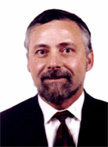 Jim Baller, president of the Baller Herbst Law Group in Washington, DC, represents clients in a broad range of communications matters nationally and in more than 35 states. He is also the founder of the US Broadband Coalition, a large and diverse consortium of organizations of all kinds that are seeking to develop as much consensus as possible on the components of a comprehensive national broadband strategy.
Jim Baller, president of the Baller Herbst Law Group in Washington, DC, represents clients in a broad range of communications matters nationally and in more than 35 states. He is also the founder of the US Broadband Coalition, a large and diverse consortium of organizations of all kinds that are seeking to develop as much consensus as possible on the components of a comprehensive national broadband strategy.
The Fiber to the Home Council has recognized Jim as "the nation's most experienced and knowledgeable attorney on public broadband matters." In 2001, the National Association of Telecommunications Officers and Advisors designated him its Member of the Year. In 2007, NATOA made him its first "Community Broadband Visionary of the Year," for "almost single-handedly putting the need for a national broadband strategy to the forefront of public consciousness." In 2007, Washingtonian Magazine listed Jim as one of "Washington's Best Lawyers" (defined as the top one percent). In 2009, Ars Technica included Jim on its list of the 25 "Top Names in Tech Policy" and FiberToday honored him as its "Person of the Year."
He is a graduate of Dartmouth College and Cornell Law School.
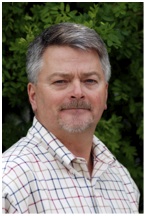 Edwin Bender, Executive Director of the National Institute on Money and State Politics, has been involved in gathering and analyzing state-level campaign-donor data for nearly two decades: first as the research director of an eight-state project in the Northwest and, since 1999, the Institute's 50-state database. Key to the success of the Institute has been Edwin's emphasis on creating collaborations with investigative reporters examining the intersection of elections, campaign finances and public-policy development, with scholars looking at the effects of campaign-finance regulations and how donor activities correlate with public policy, and with political reform advocates, as well as a wide range of think tanks and issue groups. He has made speeding online posting of contribution records in all 50 states a priority, as well as increasing training and technical assistance to Web site user groups.
Edwin Bender, Executive Director of the National Institute on Money and State Politics, has been involved in gathering and analyzing state-level campaign-donor data for nearly two decades: first as the research director of an eight-state project in the Northwest and, since 1999, the Institute's 50-state database. Key to the success of the Institute has been Edwin's emphasis on creating collaborations with investigative reporters examining the intersection of elections, campaign finances and public-policy development, with scholars looking at the effects of campaign-finance regulations and how donor activities correlate with public policy, and with political reform advocates, as well as a wide range of think tanks and issue groups. He has made speeding online posting of contribution records in all 50 states a priority, as well as increasing training and technical assistance to Web site user groups.
A graduate of the University of Montana School of Journalism, Edwin worked as a reporter and editor at newspapers in Montana, Alaska, and Washington, winning awards for stories about drug use in schools, sexual abuse of students, and impeachment proceedings against Alaska Gov. Bill Sheffield. He also was a principal in a successful open-meetings legal challenge to the City of Havre over the selection of a new police chief.
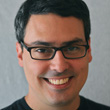 Jerry Brito is a senior research fellow at the Mercatus Center at George Mason University, and director of its Technology Policy Program. He also serves as adjunct professor of law at GMU. His research focuses on technology and Internet policy, government transparency and accountability, and the regulatory process. Jerry is also the co-creator of WCITLeaks.org, and the host of Surprisingly Free, a weekly half-hour podcast featuring in-depth discussions with an eclectic mix of authors, academics, and entrepreneurs at the intersection of technology, policy, and economics. His new book is Copyright Unbalanced: From Incentive to Excess, which is a free-market case for copyright reform. His website is jerrybrito.com.
Jerry Brito is a senior research fellow at the Mercatus Center at George Mason University, and director of its Technology Policy Program. He also serves as adjunct professor of law at GMU. His research focuses on technology and Internet policy, government transparency and accountability, and the regulatory process. Jerry is also the co-creator of WCITLeaks.org, and the host of Surprisingly Free, a weekly half-hour podcast featuring in-depth discussions with an eclectic mix of authors, academics, and entrepreneurs at the intersection of technology, policy, and economics. His new book is Copyright Unbalanced: From Incentive to Excess, which is a free-market case for copyright reform. His website is jerrybrito.com.
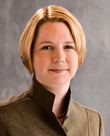 Darcy Burner was a candidate for the United States House of Representatives, running in Washington's 8th congressional district in the 2006 and 2008 and 2012 elections. Burner worked for twelve years in high technology including five years at Microsoft as a Marketing Manager, working on .NET. Burner left Microsoft to attend law school at the University of Washington in 2004. She left her law studies in 2005 to enter her first political race against Reichert. She has served on the boards of a number of local and national organizations including ActBlue, NARAL Pro-Choice America, the Netroots Foundation, the Center for International Policy, the Progressive Ideas Network, and Council for a Livable World's PeacePAC. From 2009 to 2011 she was the President and Executive Director of ProgressiveCongress.org and the Progressive Congress Action Fund, non-profits associated with the Congressional Progressive Caucus. She was also a principal in the Afghanistan Study Group, whose report on ending the war in Afghanistan was endorsed by both Republicans and Democrats.
Darcy Burner was a candidate for the United States House of Representatives, running in Washington's 8th congressional district in the 2006 and 2008 and 2012 elections. Burner worked for twelve years in high technology including five years at Microsoft as a Marketing Manager, working on .NET. Burner left Microsoft to attend law school at the University of Washington in 2004. She left her law studies in 2005 to enter her first political race against Reichert. She has served on the boards of a number of local and national organizations including ActBlue, NARAL Pro-Choice America, the Netroots Foundation, the Center for International Policy, the Progressive Ideas Network, and Council for a Livable World's PeacePAC. From 2009 to 2011 she was the President and Executive Director of ProgressiveCongress.org and the Progressive Congress Action Fund, non-profits associated with the Congressional Progressive Caucus. She was also a principal in the Afghanistan Study Group, whose report on ending the war in Afghanistan was endorsed by both Republicans and Democrats.
 Vint Cerf is co-creator of the protocols which became TCP/IP, the standard for what is now called the Internet. Working for the Department of Defense’s Advanced Research Projects Agency (DARPA) from 1972 to 1982, Cerf, his partner, Robert E. Kahn, and a host of others created the underlying protocols and architecture that would be used to the present day in this vast worldwide network. He was lead engineer in the creation of MCI Mail, the first commercial email service connected to the Internet. He has received the U.S. National Medal of Technology and a large host of other awards and accolades for his decades of technical work. He is currently VP and Internet Evangelist at Google.
Vint Cerf is co-creator of the protocols which became TCP/IP, the standard for what is now called the Internet. Working for the Department of Defense’s Advanced Research Projects Agency (DARPA) from 1972 to 1982, Cerf, his partner, Robert E. Kahn, and a host of others created the underlying protocols and architecture that would be used to the present day in this vast worldwide network. He was lead engineer in the creation of MCI Mail, the first commercial email service connected to the Internet. He has received the U.S. National Medal of Technology and a large host of other awards and accolades for his decades of technical work. He is currently VP and Internet Evangelist at Google.
 Dylan Chambers is the son of Lester Chambers and lead singer with Dylan Chambers & The Midnight Transit, a Bay Area electric blues and rock band that, "capture[s] the 60′s/70′s vibe speaking about peace, love and positive change while staying relevant to the now generation."
Dylan Chambers is the son of Lester Chambers and lead singer with Dylan Chambers & The Midnight Transit, a Bay Area electric blues and rock band that, "capture[s] the 60′s/70′s vibe speaking about peace, love and positive change while staying relevant to the now generation."
 Lester Chambers is a former member of The Chambers Brothers, the psychedelic soul supergroup of the 1960s and early 1970s. Born and raised in Mississippi, Lester grew up on a steady diet of rural blues and the new hybrid of gospel and rock n' roll called rhythm and blues. When he and his three brothers moved to Los Angeles with their family in the late '50s, Lester became exposed to the urban R&B phenomenon which dominated local radio at the time. Not surprisingly, the Chambers Brothers' residency at the famed Ash Grove club, was in large part informed by Lester's uncanny ability to marry the defining elements of these companion genres. Observed then up and coming blues/folk icon Taj Mahal, "The Chambers Brothers weren't just a great band, they were an event!" Music critics at the time unanimously agreed that this was in large part due to the singularly striking presence of Lester Chambers.
Lester Chambers is a former member of The Chambers Brothers, the psychedelic soul supergroup of the 1960s and early 1970s. Born and raised in Mississippi, Lester grew up on a steady diet of rural blues and the new hybrid of gospel and rock n' roll called rhythm and blues. When he and his three brothers moved to Los Angeles with their family in the late '50s, Lester became exposed to the urban R&B phenomenon which dominated local radio at the time. Not surprisingly, the Chambers Brothers' residency at the famed Ash Grove club, was in large part informed by Lester's uncanny ability to marry the defining elements of these companion genres. Observed then up and coming blues/folk icon Taj Mahal, "The Chambers Brothers weren't just a great band, they were an event!" Music critics at the time unanimously agreed that this was in large part due to the singularly striking presence of Lester Chambers.
 Mistress Clarissa is a dominatrix, a performance artist, a
progressive activist and a blogger (mclarissa.com). She is a frequent guest on politically progressive and adult podcasts. She also contributes to online magazines where she writes about gender equality,
compassion, alternative sexuality, the importance of diversity and the environment.
Mistress Clarissa is a dominatrix, a performance artist, a
progressive activist and a blogger (mclarissa.com). She is a frequent guest on politically progressive and adult podcasts. She also contributes to online magazines where she writes about gender equality,
compassion, alternative sexuality, the importance of diversity and the environment.
Her focus is on the connections between human sexuality, nature, and society. Her goal is a sustainable planet for all life forms. She is driven by the idea that just because it hasn't been done before, doesn't mean it can't or shouldn't be done.
 Peter Cochrane, Cochrane Associates: Peter's BT [British Telecom] career saw a progression from a linesman to R&D engineer before becaming Head of Research and then CTO. With a 1000 strong team engaged in studies spanning optical fiber, fixed and mobile networks, Peter reported direct to the main board and was responsible for developments that would support future IP, eCommerce, eRetail, eLogistics and many other new businesses. Peter’s PhD was pivotal in BT deciding to go all-digital and all-optical in the 1970’s, and he played a key role in a downsizing of BT from 242,000 to 110,000 people in the early 1990s.
Peter Cochrane, Cochrane Associates: Peter's BT [British Telecom] career saw a progression from a linesman to R&D engineer before becaming Head of Research and then CTO. With a 1000 strong team engaged in studies spanning optical fiber, fixed and mobile networks, Peter reported direct to the main board and was responsible for developments that would support future IP, eCommerce, eRetail, eLogistics and many other new businesses. Peter’s PhD was pivotal in BT deciding to go all-digital and all-optical in the 1970’s, and he played a key role in a downsizing of BT from 242,000 to 110,000 people in the early 1990s.
Peter has also been employed in the defence, logistics, travel, retail, energy, healthcare, transport, pharma, and consulting sectors as an advisor, board member, and manager with responsibilities for strategy and operations with budget responsibilities up to £1bn. As an investor and entrepreneur Peter has also engaged in the founding of new companies, investment and the management of growth leading to market success.
He was appointed as the UK’s first Prof for the Public Understanding of Science & Technology @ Bristol in 1998. A graduate of Nottingham Trent and Essex Universities, Peter has received notable recognition with the Queen's Award for Innovation & Export in 1990 and Honorary Doctorates from Essex, Robert Gordon, Stafford, Nottingham Trent and Brunel Universities. He was awarded an OBE in 1999 for contributions to international communications.
Today Peter is Principal at Cochrane Associates where ie serves as an advisor and consultant to companies and governments, the author of blogs, articles and books on technology, business and managing rapid change.
 Aaron Deacon is managing director for KC Digital Drive, a bistate initiative to drive innovation and collaboration within Kansas City and capitalize on next generation infrastructure. KC Digital Drive covers a broad range of issues including education, health care, the arts, entrepreneurship, sustainability and digital inclusion.
Aaron Deacon is managing director for KC Digital Drive, a bistate initiative to drive innovation and collaboration within Kansas City and capitalize on next generation infrastructure. KC Digital Drive covers a broad range of issues including education, health care, the arts, entrepreneurship, sustainability and digital inclusion.
He has been an instrumental leader in helping Kansas City prepare to be the first major U.S. metro area with gigabit connectivity in the home. Among many initiatives related to Google Fiber’s Kansas City project, he helped to create the Building the Gigabit City community brainstorming session. He led the Give Us a Gig initiative to educate Kansas City communities about the possibilities of gigabit speed and help neighborhoods express demand for service. And he is cofounder of the Gigabit City Summit, a series of telepresence roundtables designed to facilitate conversation among city leaders around the world about shaping city infrastructure around next generation networks.
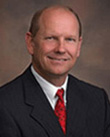 Joey Durel is City/Parish President (Mayor) of Lafayette Louisiana. Since taking office in January of 2004, his administration has been busy making good on a campaign promise to “change the culture of government” by improving the efficiency of local government through technology. Durel was instrumental in spearheading a Fiber to the Premises Initiative, which was approved by the voters of Lafayette by a 62 to 38% margin, authorizing the Lafayette Utilities System to move the project forward, and putting Lafayette on the map in what has been called a “victory for America.” He is currently the Vice Chairman of the Policy Makers Council of the American Public Power Authority.
Joey Durel is City/Parish President (Mayor) of Lafayette Louisiana. Since taking office in January of 2004, his administration has been busy making good on a campaign promise to “change the culture of government” by improving the efficiency of local government through technology. Durel was instrumental in spearheading a Fiber to the Premises Initiative, which was approved by the voters of Lafayette by a 62 to 38% margin, authorizing the Lafayette Utilities System to move the project forward, and putting Lafayette on the map in what has been called a “victory for America.” He is currently the Vice Chairman of the Policy Makers Council of the American Public Power Authority.
Durel has embraced and promoted technology, culture, and the arts, and Lafayette was named one of the “Top 10 Cities in the South for the Creative Class” because of the forward thinking and cultural diversity that sets it apart. In addition to the creative class ranking, during the fall of 2007, Lafayette was ranked 24th in the Milken Institute Best Cities Index, a jump of 119 spots from the previous year.
He has made it a priority to have an open and accessible administration, meeting with anyone, anywhere, along with hosting a weekly call-in radio show “Lafayette Live with Joey Durel” to discuss various issues in the community and answer questions about what is happening within Lafayette Consolidated Government.
Durel was first elected in November of 2003, and in October of 2007 he was unopposed for his second term as Lafayette City-Parish President.
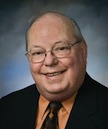 Gary Evans, who stepped down as president and CEO of Hiawatha Broadband Communications in 2012, joined the company in April of 1998. One of two people who performed the feasibility study in 1992 that led to the creation of Luminet (HBC’s predecessor), Evans is a long-time resident of the Winona MN community.
Gary Evans, who stepped down as president and CEO of Hiawatha Broadband Communications in 2012, joined the company in April of 1998. One of two people who performed the feasibility study in 1992 that led to the creation of Luminet (HBC’s predecessor), Evans is a long-time resident of the Winona MN community.
He served as Winona State University’s vice president of university relations from 1987 until 1998 and previously spent 30 years in the newspaper business, including 25 years at the Winona Daily News. During his Winona newspaper career, Evans served as a reporter, section editor, editor, executive editor, marketing director, and publisher.
A community activist, Evans has received Winona’s highest awards, the Winona Community Achievement Award in 1987 and the Adith Miller Community Tribute in 1990. He was also honored in 2001 as Minnesota Hospital Trustee of the Year, and on November 12, 2004, was honored by the Upper Mississippi Valley Chapter of the Association of Fundraising Professionals as its outstanding volunteer fundraiser. In 2008, he received Winona State University’s Distinguished Service Award.
He serves as chairman of the board of Winona Health, the community’s health care system, as chairman of the board of the Great River Shakespeare Festival, is a member of the Blandin Foundation’s Broadband Strategy Board, the Minnesota Governor’s Broadband Task Force, is a past president of the Winona Area Chamber of Commerce, and has held numerous community civic and church positions.
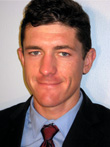 Brendan Fischer is General Counsel with the Center for Media and Democracy. He has worked extensively on the ALECexposed project, documenting ALEC agenda items like voter suppression, prison privatization, union-busting, and the telecommunications agenda. He has initiated legal challenges against ALEC's efforts to exempt their activities from state open records law, as well as filing complaints against the ALEC "scholarship" program that helps special interests sidestep state ethics and lobbying laws. He additionally works on issues related to campaign finance and election administration.
Brendan Fischer is General Counsel with the Center for Media and Democracy. He has worked extensively on the ALECexposed project, documenting ALEC agenda items like voter suppression, prison privatization, union-busting, and the telecommunications agenda. He has initiated legal challenges against ALEC's efforts to exempt their activities from state open records law, as well as filing complaints against the ALEC "scholarship" program that helps special interests sidestep state ethics and lobbying laws. He additionally works on issues related to campaign finance and election administration.
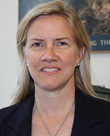 Amy Garmer has spent nearly two decades working in public policy at the leading edge of new media, communications and information technologies and practices. Her work examines the impacts of digital technology and networks on journalism, media, communities, and democratic institutions. Currently, she is Director of Journalism Projects for the Aspen Institute Communications and Society Program, where she is preparing to launch a new project on future libraries. She is the author of Freedom and Connectivity: Advancing the Freedom to Communicate in the Americas, the report of the inaugural Aspen Institute Forum on the Freedom to Communicate (published in English and Spanish and available at http://www.aspeninstitute.org/freedom2c). The Forum is an annual meeting among leaders of media, government, business, academia and the nonprofit sector to address issues surrounding the freedoms of expression, association, and connectivity in the 21st Century. Its aim is to arrive at actionable steps that can enhance the freedoms of communication, particularly in the Western Hemisphere. From 2010-2012, Amy led development, publication, and outreach of a white paper series and a companion website inspired by the Knight Commission on the Information Needs of Communities. This work focused on policy and innovations to foster universal broadband access and adoption, digital and media literacy, local journalism and information hubs, public service media, civic engagement, and government transparency. She is the author or editor of six Aspen Institute reports on such diverse topics as advertising and ethnic media, the future of journalism, digital broadcasting and the public interest, diversity in media, and technology in education. Prior to joining the Aspen Institute, Ms. Garmer served on the staff of U.S. Senator Sam Nunn.
Amy Garmer has spent nearly two decades working in public policy at the leading edge of new media, communications and information technologies and practices. Her work examines the impacts of digital technology and networks on journalism, media, communities, and democratic institutions. Currently, she is Director of Journalism Projects for the Aspen Institute Communications and Society Program, where she is preparing to launch a new project on future libraries. She is the author of Freedom and Connectivity: Advancing the Freedom to Communicate in the Americas, the report of the inaugural Aspen Institute Forum on the Freedom to Communicate (published in English and Spanish and available at http://www.aspeninstitute.org/freedom2c). The Forum is an annual meeting among leaders of media, government, business, academia and the nonprofit sector to address issues surrounding the freedoms of expression, association, and connectivity in the 21st Century. Its aim is to arrive at actionable steps that can enhance the freedoms of communication, particularly in the Western Hemisphere. From 2010-2012, Amy led development, publication, and outreach of a white paper series and a companion website inspired by the Knight Commission on the Information Needs of Communities. This work focused on policy and innovations to foster universal broadband access and adoption, digital and media literacy, local journalism and information hubs, public service media, civic engagement, and government transparency. She is the author or editor of six Aspen Institute reports on such diverse topics as advertising and ethnic media, the future of journalism, digital broadcasting and the public interest, diversity in media, and technology in education. Prior to joining the Aspen Institute, Ms. Garmer served on the staff of U.S. Senator Sam Nunn.
 Dan Gillmor's primary gig these days is at the Walter Cronkite School of Journalism & Mass Communication at Arizona State University, where I work to bring entrepreneurship into the curriculum. I’m also a blogger, author, speaker, media investor and co-founder of several online businesses.
Dan Gillmor's primary gig these days is at the Walter Cronkite School of Journalism & Mass Communication at Arizona State University, where I work to bring entrepreneurship into the curriculum. I’m also a blogger, author, speaker, media investor and co-founder of several online businesses.
- About: More about me and my work
- Mediactive: My most recent book/online project
- We the Media: The official site of my previous book, We the Media: Grassroots Journalism by the People, for the People
- Calendar: My whereabouts and speaking engagements
- Contact: How to get in touch with me
 Mike Godwin is Senior Policy Advisor on the Global Internet Policy Project at Internews.
Mike Godwin is Senior Policy Advisor on the Global Internet Policy Project at Internews.
Mike is an American attorney and author who has worked on a wide range of internet law and policy issues for more than 20 years. He was hired directly out of law school in 1990 to become the first staff counsel of the Electronic Frontier Foundation (EFF), where he worked for nine years, culminating in his work leading to and following the Supreme Court case Reno v. ACLU, which established free-speech principles for internet expression under American law. Mike is also famous (or notorious) as the creator of the Internet adage Godwin's Law of Nazi Analogies. In the later 1990s and early 2000s, Mike worked on intellectual-property and technology-policy issues for the Center for Democracy and Technology and for Public Knowledge, two Washington, D.C.-based NGOs. From July 2007 to October 2010, he was general counsel for the Wikimedia Foundation, and has remained a consulting attorney to Wikimedia/Wikipedia since then, notably advising WMF in staging the SOPA-protest blackout in January 2012. Mike has served on the Open Source Initiative board and on the Student Press Law Center board. He also has served as a contributing editor of Reason magazine since 1994, not only writing on political and legal topics, but also contributing book reviews and interviews with science-fiction authors.
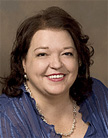 Lisa Graves is the Executive Director of the Center for Media and Democracy, the publisher of PR Watch, SourceWatch, BanksterUSA, and ALECexposed.org. She previously served as a senior advisor in all three branches of the federal government, as a leading strategist on civil liberties advocacy, and as an adjunct law professor at one of the top law schools in the country. Her former leadership posts include:
Lisa Graves is the Executive Director of the Center for Media and Democracy, the publisher of PR Watch, SourceWatch, BanksterUSA, and ALECexposed.org. She previously served as a senior advisor in all three branches of the federal government, as a leading strategist on civil liberties advocacy, and as an adjunct law professor at one of the top law schools in the country. Her former leadership posts include:
- Deputy Assistant Attorney General in the Office of Legal Policy/Policy Development at the U.S. Department of Justice (handling an array of civil and criminal policy issues as well as leading the working group on judicial nominations)
- Chief Counsel for Nominations for the U.S. Senate Judiciary Committee for the Chairman/Ranking Member
- Senior Legislative Strategist for the American Civil Liberties Union (on national security and surveillance policies)
- Deputy Director of the Center for National Security Studies
- Deputy Chief of the Article III Judges Division of the U.S. Courts (including oversight of the Financial Disclosure Office for judicial ethics)
 Glenn Greenwald is an American political journalist, lawyer, columnist, blogger, and author. In August 2012, he left his job at Salon.com for a post at The Guardian newspaper, to which he has contributed since June 2011. Politically, Greenwald describes himself as independent, though others see him as a liberal or progressive. Greenwald worked as a constitutional and civil rights litigator before becoming a contributor (columnist and blogger) to Salon.com, where he focused on political and legal topics. He has also contributed to other newspapers and political news magazines, including The New York Times and the Los Angeles Times. Greenwald has written four books, three of which have been New York Times bestsellers: How Would a Patriot Act? (2006); A Tragic Legacy (2007), and With Liberty and Justice for Some: How the Law Is Used to Destroy Equality and Protect the Powerful (2011). He also wrote Great American Hypocrites (2008). Greenwald has received such awards as the first Izzy Award for independent journalism, in 2009 and the 2010 Online Journalism Award for Best Commentary.
Glenn Greenwald is an American political journalist, lawyer, columnist, blogger, and author. In August 2012, he left his job at Salon.com for a post at The Guardian newspaper, to which he has contributed since June 2011. Politically, Greenwald describes himself as independent, though others see him as a liberal or progressive. Greenwald worked as a constitutional and civil rights litigator before becoming a contributor (columnist and blogger) to Salon.com, where he focused on political and legal topics. He has also contributed to other newspapers and political news magazines, including The New York Times and the Los Angeles Times. Greenwald has written four books, three of which have been New York Times bestsellers: How Would a Patriot Act? (2006); A Tragic Legacy (2007), and With Liberty and Justice for Some: How the Law Is Used to Destroy Equality and Protect the Powerful (2011). He also wrote Great American Hypocrites (2008). Greenwald has received such awards as the first Izzy Award for independent journalism, in 2009 and the 2010 Online Journalism Award for Best Commentary.
 Dewayne Hendricks is CEO, of Tetherless Access, Inc. (TAI), a Fremont, California based company which does research, product development and deployment of broadband wired and wireless data devices and services. TAI is the new incarnation of Tetherless Access Ltd. (TAL) where he was its CEO and co-founder. TAL was founded back in 1990 and was one of the first companies to develop and deploy Part 15 unlicensed wireless metropolitan area data networks which used the TCP/IP protocols. TAL eventually went public in 1996. He was also a member of the Federal Communications Commission (FCC) Technological Advisory Council (TAC), for eight years serving from 1998-2006. In 2001, Wired Magazine dubbed him the ‘Broadband Cowboy’ for his work deploying wireless broadband networks all over the world. He has participated in the installation of wireless networks in many parts of the world such as Kenya, Tonga, Mexico, Canada and Mongolia. He has been involved with radio since his teens, when he obtained his amateur radio operator’s license.
Dewayne Hendricks is CEO, of Tetherless Access, Inc. (TAI), a Fremont, California based company which does research, product development and deployment of broadband wired and wireless data devices and services. TAI is the new incarnation of Tetherless Access Ltd. (TAL) where he was its CEO and co-founder. TAL was founded back in 1990 and was one of the first companies to develop and deploy Part 15 unlicensed wireless metropolitan area data networks which used the TCP/IP protocols. TAL eventually went public in 1996. He was also a member of the Federal Communications Commission (FCC) Technological Advisory Council (TAC), for eight years serving from 1998-2006. In 2001, Wired Magazine dubbed him the ‘Broadband Cowboy’ for his work deploying wireless broadband networks all over the world. He has participated in the installation of wireless networks in many parts of the world such as Kenya, Tonga, Mexico, Canada and Mongolia. He has been involved with radio since his teens, when he obtained his amateur radio operator’s license.
 Ben Huh has always been a start up guy. Ben founded Cheezburger, Inc. after acquiring I Can Has Cheezburger? in 2007 and grew it into one of the largest humor networks in the world — while making a profit during one of the deepest recessions. Cheezburger has been credited with bringing Internet culture and memes to the mainstream. Ben credits the success of his company to the users and fans who create the content. His goal, and Cheezburger’s mission, is to make the world happy for 5-minutes a day.
Ben Huh has always been a start up guy. Ben founded Cheezburger, Inc. after acquiring I Can Has Cheezburger? in 2007 and grew it into one of the largest humor networks in the world — while making a profit during one of the deepest recessions. Cheezburger has been credited with bringing Internet culture and memes to the mainstream. Ben credits the success of his company to the users and fans who create the content. His goal, and Cheezburger’s mission, is to make the world happy for 5-minutes a day.
Ben is also a co-founder of Circa, a startup that is trying to redefine how we consume news.
Ben graduated with a BSJ from Northwestern University’s Medill School of Journalism.
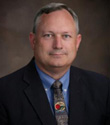 Terry Huval has served as Director of Lafayette Utilities System (LUS) since 1994. In 1998, Huval was instrumental in convincing city leaders to build a fiber ring around the city, making Lafayette one of a handful of cities offering high speed broadband technology to businesses and schools. Today, Huval is leading an initiative to bring broadband fiber directly into the home. LUS’s proposed Fiber-to-the-Home (FTTH) initiative will offer high-speed cable, Internet and digital phone service to the residents and businesses of Lafayette through the use of fiber optics technology. The project has garnered a ground swell of local support and international attention. Upon completion of its current implementation, Lafayette will distinguish itself as one of the largest cities in the United States to operate a municipally owned FTTH system. Deeply engaged in the local Cajun culture, Huval is the leader of one of the most established and recognized Cajun bands in the area, the Jambalaya Cajun Band. In 2007, Terry was inducted into the Cajun French Music Association Hall of Fame.
Terry Huval has served as Director of Lafayette Utilities System (LUS) since 1994. In 1998, Huval was instrumental in convincing city leaders to build a fiber ring around the city, making Lafayette one of a handful of cities offering high speed broadband technology to businesses and schools. Today, Huval is leading an initiative to bring broadband fiber directly into the home. LUS’s proposed Fiber-to-the-Home (FTTH) initiative will offer high-speed cable, Internet and digital phone service to the residents and businesses of Lafayette through the use of fiber optics technology. The project has garnered a ground swell of local support and international attention. Upon completion of its current implementation, Lafayette will distinguish itself as one of the largest cities in the United States to operate a municipally owned FTTH system. Deeply engaged in the local Cajun culture, Huval is the leader of one of the most established and recognized Cajun bands in the area, the Jambalaya Cajun Band. In 2007, Terry was inducted into the Cajun French Music Association Hall of Fame.
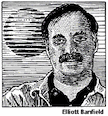 David S. Isenberg, isen.com, LLC, produces F2C: Freedom to Connect and Net-WorkShop. He spent 12 years (1985-1998) at AT&T Bell Labs and AT&T Labs, where he was awarded the title, Distinguished Member of Technical Staff. At AT&T he wrote The Rise of the Stupid Network, which Dale Hatfield, then Chief of the FCC’s Office of Engineering and Technology, called, “one of the three works that changed my perception of the telecommunications industry.” The essay went viral on the Internet, before AT&T knew much about going viral on the Internet. To make a long story short, Isenberg quit shortly thereafter to found isen.com, LLC, a decidedly independent telecom analysis firm. Since then, he’s been a Fellow of the Berkman Center for Internet and Society (2005-2006), and a Senior Advisor to the FCC (2009-2010) working on the National Broadband Plan.
David S. Isenberg, isen.com, LLC, produces F2C: Freedom to Connect and Net-WorkShop. He spent 12 years (1985-1998) at AT&T Bell Labs and AT&T Labs, where he was awarded the title, Distinguished Member of Technical Staff. At AT&T he wrote The Rise of the Stupid Network, which Dale Hatfield, then Chief of the FCC’s Office of Engineering and Technology, called, “one of the three works that changed my perception of the telecommunications industry.” The essay went viral on the Internet, before AT&T knew much about going viral on the Internet. To make a long story short, Isenberg quit shortly thereafter to found isen.com, LLC, a decidedly independent telecom analysis firm. Since then, he’s been a Fellow of the Berkman Center for Internet and Society (2005-2006), and a Senior Advisor to the FCC (2009-2010) working on the National Broadband Plan.
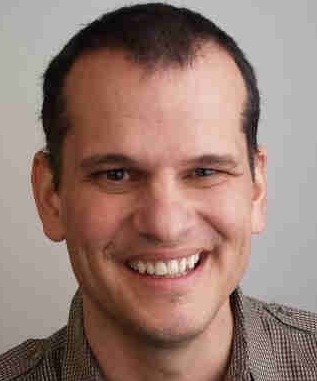 Tim Karr Campaign Director for Free Press, oversees all Free Press campaigns and online outreach efforts, including SavetheInternet.com and our work on public broadcasting, propaganda, and journalism. Before joining Free Press, Tim served as executive director of MediaChannel.org and vice president of Globalvision New Media and the Globalvision News Network. He has also worked extensively as an editor, reporter and photojournalist for the Associated Press, Time Inc., New York Times and Australia Consolidated Press. Tim critiques, analyzes and reports on media and media policy for the Huffington Post and on his personal blog, MediaCitizen.
Tim Karr Campaign Director for Free Press, oversees all Free Press campaigns and online outreach efforts, including SavetheInternet.com and our work on public broadcasting, propaganda, and journalism. Before joining Free Press, Tim served as executive director of MediaChannel.org and vice president of Globalvision New Media and the Globalvision News Network. He has also worked extensively as an editor, reporter and photojournalist for the Associated Press, Time Inc., New York Times and Australia Consolidated Press. Tim critiques, analyzes and reports on media and media policy for the Huffington Post and on his personal blog, MediaCitizen.
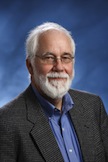 Pat Kennedy is the CEO and majority owner of OSIsoft. Under Dr. Kennedy's visionary leadership, the company has grown from a small software startup in 1980 to a highly profitable global corporation. Prior to founding the company, Dr. Kennedy worked as a research engineer for Shell Development Company and as an applications consultant for Taylor Instrument Company.
Pat Kennedy is the CEO and majority owner of OSIsoft. Under Dr. Kennedy's visionary leadership, the company has grown from a small software startup in 1980 to a highly profitable global corporation. Prior to founding the company, Dr. Kennedy worked as a research engineer for Shell Development Company and as an applications consultant for Taylor Instrument Company.
Dr. Kennedy attended the University of Kansas where he earned a Bachelor of Science in Chemical Engineering and a Ph.D. in Chemical Engineering. A registered professional engineer in control systems engineering, he holds a patent on a catalytic reformer control system. He co-authored a chapter of the book "Planning, Scheduling and Control Integration in the Process Industries," C. Edward Bodington, ed. (McGraw-Hill Co., 1995), and is the author of numerous papers.
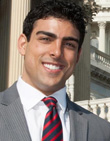 Derek Khanna authored the controversial House of Representatives Republican Study Committee memo "Three Myths about Copyright Law." The memo was widely lauded through the tech community as well as by conservative organizations. As a result of the memo, he is a former staffer for said Republican Study Committee. He is currently is a political consultant, columnist for the National Review, and Founder and Chairman of a new 501c4 organization. He continues to be a leading thought leader on patent and copyright reform as well as H-1B Visa reform. His work on cybersecurity has been well recognized by various cybersecurity experts. He works as consultant for the Department of Defense's Defense Science Board on Cybersecurity in the Cloud. He also is a currently a law student at night at Georgetown Law.
Derek Khanna authored the controversial House of Representatives Republican Study Committee memo "Three Myths about Copyright Law." The memo was widely lauded through the tech community as well as by conservative organizations. As a result of the memo, he is a former staffer for said Republican Study Committee. He is currently is a political consultant, columnist for the National Review, and Founder and Chairman of a new 501c4 organization. He continues to be a leading thought leader on patent and copyright reform as well as H-1B Visa reform. His work on cybersecurity has been well recognized by various cybersecurity experts. He works as consultant for the Department of Defense's Defense Science Board on Cybersecurity in the Cloud. He also is a currently a law student at night at Georgetown Law.
He worked on Mitt Romney’s 2008 presidential campaign and the 2012 campaign with Lawyers for Romney and on his Defense Policy Working Group. He previously managed technology issues for Senator Scott Brown of Massachusetts, and worked on Senator Scott Brown's campaign.
Derek has a long history of trying to reform politics. While at his alma mater he led a campaign that successfully overturned an affirmative action system that he argued violated the Constitution, and investigated Massachusetts officials he accused of stealing state funds. After leading a successful investigation, he was able to get all stolen funds returned.
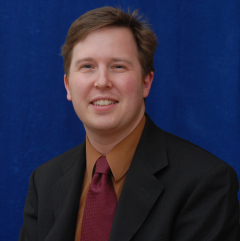 Sascha Meinrath is Director of the New America Foundation’s Open Technology Initiative and has been described as a “community Internet pioneer” and an “entrepreneurial visionary.” He is a well-known expert on community wireless networks, municipal broadband, and telecommunications policy. In 2009 he was named one of Ars Technica’s Tech Policy “People to Watch” and is also the 2009 recipient of the Public Knowledge IP3 Award for excellence in public interest advocacy. Sascha is a co-founder of Measurement Lab, a distributed server platform for researchers around the world to deploy Internet measurement tools, advance network research, and empower the public with useful information about their broadband connections. He also coordinates the Open Source Wireless Coalition, a global partnership of open source wireless integrators, researchers, implementors and companies dedicated to the development of open source, interoperable, low-cost wireless technologies. He is a regular contributor to Government Technology’s Digital Communities, the online portal and comprehensive information resource for the public sector. Sascha has worked with Free Press, the Cooperative Association for Internet Data Analysis (CAIDA), the Acorn Active Media Foundation, the Ethos Group, and the CUWiN Foundation.
Sascha Meinrath is Director of the New America Foundation’s Open Technology Initiative and has been described as a “community Internet pioneer” and an “entrepreneurial visionary.” He is a well-known expert on community wireless networks, municipal broadband, and telecommunications policy. In 2009 he was named one of Ars Technica’s Tech Policy “People to Watch” and is also the 2009 recipient of the Public Knowledge IP3 Award for excellence in public interest advocacy. Sascha is a co-founder of Measurement Lab, a distributed server platform for researchers around the world to deploy Internet measurement tools, advance network research, and empower the public with useful information about their broadband connections. He also coordinates the Open Source Wireless Coalition, a global partnership of open source wireless integrators, researchers, implementors and companies dedicated to the development of open source, interoperable, low-cost wireless technologies. He is a regular contributor to Government Technology’s Digital Communities, the online portal and comprehensive information resource for the public sector. Sascha has worked with Free Press, the Cooperative Association for Internet Data Analysis (CAIDA), the Acorn Active Media Foundation, the Ethos Group, and the CUWiN Foundation.
Sascha serves on the Leadership Committee of the CompTIA Education Foundation as well as the Advisory Council for the Knight Commission on the Information Needs of Communities in a Democracy. He blogs regularly at www.saschameinrath.com.
 Dan Meredith currently works with the Freedom 2 Connect Foundation on the Open Technology Fund.
Dan Meredith currently works with the Freedom 2 Connect Foundation on the Open Technology Fund.
Dan has been an activist, technologist, and journalist exploring emerging trends intersecting human rights, transparency, global communication policy, the Internet, and information security for over a decade. As a senior technology fellow at New America Foundation in Washington, D.C., Dan worked with Open Technology Initiative and Media Policy staff to operationalize new technology pilot projects and bring together global communities to educate, demystify, and evangelize open, distributed, and decentralized technologies that fight censorship and disrupt authoritarianism.
As a senior producer and technologist at Al Jazeera Network in Doha, Qatar, Dan upgraded modern traditional investigative journalist toolkits with modern technology to protect field journalists and their sources, create a worldwide whistle-blowing and news gathering platform, and produce technology centric television broadcasts.
In Dan's last job at Radio Free Asia, Dan directed its Freedom 2 Connect Program, which provides support for global technology projects that increase both capacity for and access to secure channels of communications essential to the principles of free speech, free expression, and the free exchange of ideas.
 Chris Mitchell is director of the Telecommunications as Commons Initiative of the Institute for Local Self-Reliance. A national expert on community broadband, Mitchell has worked to educate legislators and rally supporters against the efforts of large telecommunications and cable companies that make it more difficult for cities and counties to build high-speed networks.
Chris Mitchell is director of the Telecommunications as Commons Initiative of the Institute for Local Self-Reliance. A national expert on community broadband, Mitchell has worked to educate legislators and rally supporters against the efforts of large telecommunications and cable companies that make it more difficult for cities and counties to build high-speed networks.
Chris has worked as a server administrator, web geek, and in automated quality assurance for software. He earned a Master’s degree in Public Policy from the Hubert Humphrey Institute of Public Affairs at the University of Minnesota and a Bachelor’s degree in Political Science from Macalester College.
On a day-to-day basis, Mitchell runs MuniNetworks.org, the comprehensive online clearinghouse of information about community broadband. In May, 2010, he published the comprehensive report on publicly owned broadband networks titled “Breaking the Broadband Monopoly: How Communities Are Building the Networks They Need.” In April 2011, Mitchell released the Community Broadband Map, the first map to plot all the wired community owned networks in the nation. His research and reports are available online. His twitter handle is @communitynets.
Chris is also a professional sports photographer, shooting regularly for Minnesota’s Golden Gophers and other clients in Minnesota.
 Craig Newman is Chief Executive Officer of the Freedom2Connect Foundation, a D.C.-based nonprofit founded to promote Internet freedom through the use of technology. F2CF collaborates with Radio Free Asia’s Open Technology Fund through a public-private partnership to support technology development.
Craig Newman is Chief Executive Officer of the Freedom2Connect Foundation, a D.C.-based nonprofit founded to promote Internet freedom through the use of technology. F2CF collaborates with Radio Free Asia’s Open Technology Fund through a public-private partnership to support technology development.
Mr. Newman is a former journalist, media executive and lawyer. He spent more than a decade as a partner with Washington, D.C.’s Arnold & Porter, including a stint as General Counsel of Americast, the national media venture of The Walt Disney Company and former regional bell operating companies. He also serves as Chairman of the National Board of Advisors for the Cronkite School of Journalism & Mass Communications at Arizona State University. In addition, he is a member of the Advisory Board of Newsy, a multi-source news service. Mr. Newman is currently a partner in Richards Kibbe & Orbe LLP, the New York-based law firm, and a member of the firm’s Executive Committee.
He is a frequent speaker and contributor to major publications including The New York Times, The Wall Street Journal and Financial Times.
 Alexis Ohanian is a startup founder and investor in Brooklyn, NY. After graduating from UVA in 2005, Alexis and his co-founder Steve Huffman started reddit, now a top 100 website. Now a reddit board member, Alexis focuses on social enterprise Breadpig, publishing authors like xkcd and SMBC -- profits donated to worthy causes.
Alexis Ohanian is a startup founder and investor in Brooklyn, NY. After graduating from UVA in 2005, Alexis and his co-founder Steve Huffman started reddit, now a top 100 website. Now a reddit board member, Alexis focuses on social enterprise Breadpig, publishing authors like xkcd and SMBC -- profits donated to worthy causes.
Alexis helped launch hipmunk and ran marketing/pr/community before becoming an advisor and joining the fight against SOPA & PIPA. Alexis invests and advises over fifty tech startups. He's Y Combinator's Ambassador to the East, co-founder of the non-profit IHAS, and is writing a book, Without Your Permission. Along the way, Alexis spoke at TED, volunteered in Armenia as a Kiva Fellow, and was named on Forbes and Inc Magazine 30 Under 30 lists.
He proudly doodled the logos for all three of his startups and loves his cat, Karma.
 Rainey Reitman leads the activism team at the Electronic Frontier Foundation. She is particularly interested in the intersection between personal privacy and technology, particularly social networking privacy, locational privacy, and online data brokers. She's also a bit obsessed with software patents. Prior to joining EFF, Reitman served as Director of Communications for the Privacy Rights Clearinghouse , a nonprofit advocacy and education organization promoting consumer privacy. She earned her BA from Bard College in Multidisciplinary Studies: Creative Writing, Russian & Gender Studies.
Rainey Reitman leads the activism team at the Electronic Frontier Foundation. She is particularly interested in the intersection between personal privacy and technology, particularly social networking privacy, locational privacy, and online data brokers. She's also a bit obsessed with software patents. Prior to joining EFF, Reitman served as Director of Communications for the Privacy Rights Clearinghouse , a nonprofit advocacy and education organization promoting consumer privacy. She earned her BA from Bard College in Multidisciplinary Studies: Creative Writing, Russian & Gender Studies.
Reitman is a founder and steering committee member for the Bradley Manning Support Network , a network of individuals and organizations advocating for the release of accused WikiLeaks whistleblower Pfc. Bradley Manning. Additionally, Reitman serves on the board of the directors for the Bill of Rights Defense Committee , a nonprofit whose mission is to organize and support an effective, national grassroots movement to restore civil liberties guaranteed by the Bill of Rights. She is also a steering committee member of the Internet Defense League , a netroots coalition working to fend off threats to the free and open Web. Reitman is also Chief Operating Officer and co-founder of the Freedom of the Press Foundation , a nonprofit organization that crowd-sources funding to supporting unique, independent, nonprofit journalistic institutions.
 Catharine Rice is President of the SouthEast Association of Telecommunications Officers and Advisors (SEATOA). For the last ten years, Catharine has been a cable and broadband consultant serving North Carolina communities in planning and deploying local broadband systems, focusing particularly on those communities in the Research Triangle area and surrounding rural counties. The earlier periods of this work included cable rate regulatory oversight and enforcing build-out and transfer of ownership requirements under local cable franchises. With the passage of the state’s cable deregulatory legislation, her focus turned to developing municipal solutions to the lack of private sector broadband deployments and competition, including working with the City of Wilson in the development and implementation of North Carolina’s first fiber-to-the home system. When the industry attempted to shut down that system and other municipal systems, Catharine organized a North Carolina grassroots movement with SEATOA and worked with NCLM to block industry-sponsored anti-municipal broadband legislation, a battle which lasted four years but, disappointingly, ended with the industry prevailing under new Republican leadership. During this same period, Catharine lead numerous SEATOA efforts to guarantee PEG access funding (and actual payment) through revisions to the state’s Video Services Competition Act. Prior to her work in North Carolina, Ms. Rice served more than ten years as Vice President of the Washington, DC-based municipal-consulting firm, Institute for the Positive Use of Technology, (InPUT). She holds a masters degree from the University of Pennsylvania’s Annenberg School of Communications and served as NATOA’s Administrative Officer from 1984-1989.
Catharine Rice is President of the SouthEast Association of Telecommunications Officers and Advisors (SEATOA). For the last ten years, Catharine has been a cable and broadband consultant serving North Carolina communities in planning and deploying local broadband systems, focusing particularly on those communities in the Research Triangle area and surrounding rural counties. The earlier periods of this work included cable rate regulatory oversight and enforcing build-out and transfer of ownership requirements under local cable franchises. With the passage of the state’s cable deregulatory legislation, her focus turned to developing municipal solutions to the lack of private sector broadband deployments and competition, including working with the City of Wilson in the development and implementation of North Carolina’s first fiber-to-the home system. When the industry attempted to shut down that system and other municipal systems, Catharine organized a North Carolina grassroots movement with SEATOA and worked with NCLM to block industry-sponsored anti-municipal broadband legislation, a battle which lasted four years but, disappointingly, ended with the industry prevailing under new Republican leadership. During this same period, Catharine lead numerous SEATOA efforts to guarantee PEG access funding (and actual payment) through revisions to the state’s Video Services Competition Act. Prior to her work in North Carolina, Ms. Rice served more than ten years as Vice President of the Washington, DC-based municipal-consulting firm, Institute for the Positive Use of Technology, (InPUT). She holds a masters degree from the University of Pennsylvania’s Annenberg School of Communications and served as NATOA’s Administrative Officer from 1984-1989.
 Greg Richardson is the Managing Partner for Civitium, a leading community broadband consulting and engineering firm. Since founding the company in 2004, he has advised dozens of municipalities, service providers and utilities on broadband business, technology and public policy matters.
Greg Richardson is the Managing Partner for Civitium, a leading community broadband consulting and engineering firm. Since founding the company in 2004, he has advised dozens of municipalities, service providers and utilities on broadband business, technology and public policy matters.
In 2009-2010, Greg led the flagship North Georgia Network (NGN) regional fiber project to secure $42 million in BTOP funding from the NTIA. Since 2011, he has also served as the consulting and engineering lead for the BTOP-funded Appalachian Valley Fiber Network (AVFN) project in northwest Georgia.
Prior to founding Civitium, Greg served as the Director of Wireless Consulting for Siemens in North America where his role included leading a team of consultants to deliver wireless consulting services for Fortune 500 clients. Prior to his role at Siemens, he served as VP of Professional Services for Wireless Knowledge, a pioneering joint venture between Microsoft and QUALCOMM and VP of Professional Services for Inacom Corporation, a $6 billion IT services company, which was acquired by Compaq (now HP) in 2000.
In 2011, Greg founded 7hills Makerspace in his hometown of Rome, Georgia. 7hills operates as a nonprofit community technology workshop for creative people to invent, share and collaborate. 7hills has now become the cornerstone of a broader community development effort, and a world-class innovation event called Rome Confluence.
Greg is a regular speaker at international industry conferences, having spoken and led workshops on 5 continents and more than a dozen countries.
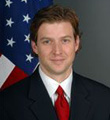 Alec Ross serves as Senior Advisor for Innovation in the Office of Secretary of State Hillary Clinton. In this role, Alec is tasked with maximizing the potential of technology in service of America’s diplomatic and development goals.
Alec Ross serves as Senior Advisor for Innovation in the Office of Secretary of State Hillary Clinton. In this role, Alec is tasked with maximizing the potential of technology in service of America’s diplomatic and development goals.
Prior to his service at the State Department, Alec worked on the Obama-Biden Presidential Transition Team and served as Convener for Obama for America's Technology, Media & Telecommunications Policy Committee.
In 2000, Alec Ross and three colleagues co-founded One Economy, a global nonprofit that uses innovative approaches to deliver the power of technology and information about education, jobs, health care and other vital issues to low-income people. During his eight years at One Economy, it grew from a team of four people working in a basement to the world's largest digital divide organization, with programs on four continents.
Alec started his career as a sixth grade teacher in inner-city Baltimore through Teach for America. He is a graduate of Northwestern University.
 Scot Rourke is an internationally renowned thought leader and founder of OneCommunity. Prior to launching OneCommunity, Scot was president of a national information technology and services company with annual sales of more than $100 million. He is a founding partner of Cleveland Social Venture Partners,served as president of the board for the Friends of the Cleveland School of the Arts and currently serves as trustee. Scot is also a trustee for the Great Lakes Science Center and a board member for Vox Mobile.
Scot Rourke is an internationally renowned thought leader and founder of OneCommunity. Prior to launching OneCommunity, Scot was president of a national information technology and services company with annual sales of more than $100 million. He is a founding partner of Cleveland Social Venture Partners,served as president of the board for the Friends of the Cleveland School of the Arts and currently serves as trustee. Scot is also a trustee for the Great Lakes Science Center and a board member for Vox Mobile.
He received a B.S. from the University of Michigan, concentrating in business administration and organizational studies.
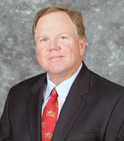 James Salter founded Atlantic Engineering in December 1995. Prior to that, he served for seven years as the general manager of Monroe Utilities Network, a municipal utility that owned and operated a broadband telecommunications system. In addition to providing electricity, natural gas, water, and wastewater services, the Monroe Utilities Network has thirty years experience in broadband communications. In the field of telecommunications, Mr. Salter has served in the role of operator, consultant, designer, and contractor. Mr. Salter currently serves as the Chairman of the Board of Atlantic Engineering Group and Chief Strategy Officer.
James Salter founded Atlantic Engineering in December 1995. Prior to that, he served for seven years as the general manager of Monroe Utilities Network, a municipal utility that owned and operated a broadband telecommunications system. In addition to providing electricity, natural gas, water, and wastewater services, the Monroe Utilities Network has thirty years experience in broadband communications. In the field of telecommunications, Mr. Salter has served in the role of operator, consultant, designer, and contractor. Mr. Salter currently serves as the Chairman of the Board of Atlantic Engineering Group and Chief Strategy Officer.
 Gwenn Liberty Seemel is named after the Liberty Bell, a cracked
ding-dong with a venerable history. She's also an artist who is
deeply committed to the free culture movement and to a brand of
feminism which embraces equality for both woman- and mankind. Her
current project, Crime Against Nature, champions both of these
passions in the form of a freely available e-book which reveals the
true diversity of natural behaviors among males and females--a
diversity which is too often hidden or shunned.
Gwenn Liberty Seemel is named after the Liberty Bell, a cracked
ding-dong with a venerable history. She's also an artist who is
deeply committed to the free culture movement and to a brand of
feminism which embraces equality for both woman- and mankind. Her
current project, Crime Against Nature, champions both of these
passions in the form of a freely available e-book which reveals the
true diversity of natural behaviors among males and females--a
diversity which is too often hidden or shunned.
An American raised part-time in France, Seemel is currently settled in Portland, Oregon, where she writes and creates videos in English and in French for her award-winning blog about her work, portraiture, and all of art-kind.
She is the recipient of grants from the Regional Arts and Culture Council, the Oregon Arts Commission, the Celebration Foundation, the Haven Foundation, Change Inc, and Artists' Fellowship Inc. Seemel's work has been written about by the prominent portraiture scholar Dr. Richard Brilliant and featured on such Web sites as BoingBoing (here and here) as well as OWNI.fr.
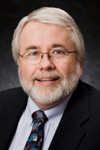 Michael K. Smeltzer is the Director of Network Infrastructure at the University of Illinois at Urbana-Champaign. He also used to be the Director of Networking, but then he got this crazy idea about building a community fiber network, and soon he no longer had time to manage the #1-ranked campus network.
Michael K. Smeltzer is the Director of Network Infrastructure at the University of Illinois at Urbana-Champaign. He also used to be the Director of Networking, but then he got this crazy idea about building a community fiber network, and soon he no longer had time to manage the #1-ranked campus network.
Mike was the Principal Instigator behind the Urbana-Champaign Big Broadband (UC2B) Consortium's $29.4 million BTOP infrastructure proposal that was funded by NTIA in March of 2010. The UC2B project is evenly split between seven middle-mile fiber rings connecting more than 200 Anchor Institutions throughout the community to gigabit fiber, and a last-mile Fiber-to-the-Premise infrastructure passing some 4,650 households and 200 businesses in "underserved" neighborhoods. More than 800 locations are now operational.
Before returning to the University in 2005, Mike was the local Operations Manager for McLeodUSA, where he helped manage a $7 million fiber project. Mike has also been a faculty member in the University's College of Communications, at Eastern Illinois University and at University High School. He currently also serves as the University's representative to Gig.U.
A very long time ago, Mike was a professional photojournalist for the United Press International and a cinematographer and television news anchor for WCIA-TV. He also served as Publisher and General Manager of the Illini Media Company. While he likes to believe that his circuitous career path displays a deep capacity for life-long learning, his wife of some 38 years believes that it simply demonstrates that he cannot keep a job.
 Christopher Soghoian is the Principal Technologist and a Senior Policy Analyst with the Speech, Privacy and Technology Project at the American Civil Liberties Union.
Christopher Soghoian is the Principal Technologist and a Senior Policy Analyst with the Speech, Privacy and Technology Project at the American Civil Liberties Union.
He completed his Ph.D. at Indiana University in 2012, which focused on the role that third party service providers play in facilitating law enforcement surveillance of their customers. His research has appeared in publications including the Berkeley Technology Law Journal and been cited by several federal courts, including the 9th Circuit Court of Appeals.
Between 2009 and 2010, he was the first in-house technologist at the Federal Trade Commission's Division of Privacy and Identity Protection, where he worked on investigations of Facebook, Twitter, MySpace and Netflix.
 Taren Stinebrickner-Kauffman is the founder and executive director of SumOfUs. Taren is a dual Australian-American citizen. She has experience with online organizing on four continents and at the global level, including at Avaaz.org, GetUp.org.au, and the AFL-CIO. She is the partner of the late Aaron Swartz.
Taren Stinebrickner-Kauffman is the founder and executive director of SumOfUs. Taren is a dual Australian-American citizen. She has experience with online organizing on four continents and at the global level, including at Avaaz.org, GetUp.org.au, and the AFL-CIO. She is the partner of the late Aaron Swartz.
 Trevor Timm is the co-founder and executive director of the Freedom of the Press Foundation, which supports and funds independent journalism organizations dedicated to transparency and accountability in government. He is also a digital rights analyst at the Electronic Frontier Foundation.
Trevor Timm is the co-founder and executive director of the Freedom of the Press Foundation, which supports and funds independent journalism organizations dedicated to transparency and accountability in government. He is also a digital rights analyst at the Electronic Frontier Foundation.
Previously, Trevor helped the longtime General Counsel of The New York Times, James Goodale, write a book on the First Amendment. He has also worked for the former President of the ACLU and at The New Yorker. He graduated from Northeastern University and has a J.D. from New York Law School.
He can be found on Twitter at @TrevorTimm, where he tweets regularly. In addition, he co-operates the @Drones Twitter account, which reports on surveillance drones in the US and the secrecy surrounding military drones around the world.









